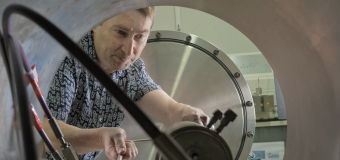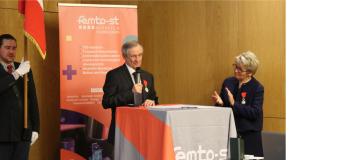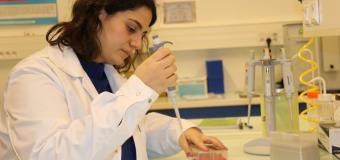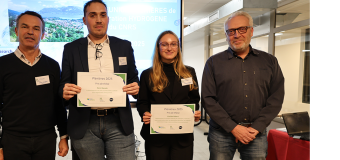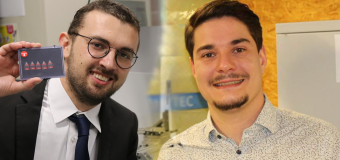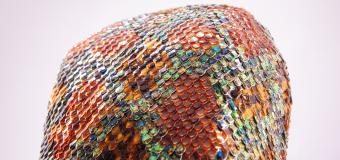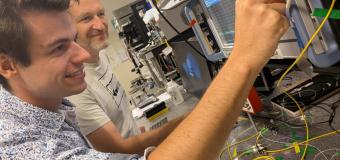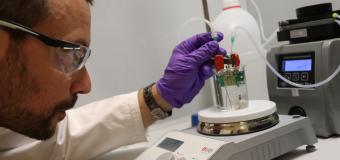Stardust Odyssey : A new world record !
Discover the smallest volume character ever animated in stop-motion (frame by frame) through a short film made thanks to FEMTO-ST's high-tech robotic equipments and researchers.
The short film and his making-of are available : stardust-odyssey.com
[[{"fid":"5305","view_mode":"default","fields":{"format":"default","alignment":"","field_file_image_alt_text[und][0][value]":false,"field_file_image_title_text[und][0][value]":false,"external_url":""},"type":"media","field_deltas":{"1":{"format":"default","alignment":"","field_file_image_alt_text[und][0][value]":false,"field_file_image_title_text[und][0][value]":false,"external_url":""}},"attributes":{"class":"media-element file-default","data-delta":"1"}}]]
Stardust Odyssey is a short animated film in stop motion (shot frame by frame) written and directed by Tibo Pinsard. It was shot at a scale never explored in a film before: the microscopic scale.
The film is a co-production by the French movie company Darrowan Prod, the Université de Franche-Comté represented by the FEMTO-ST Institute (Besançon, France) and the Université Libre de Bruxelles represented by the TIPS laboratory (Brussels, Belgium). It is supported by the Region Bourgogne Franche-Comté.
In stardust Odyssey, you will discover the smallest-ever 3D figurine in a stop motion film. Its height is 300 microns or 0,3 millimeter. Close to the size of a grain of dust, it is almost invisible to the human eyes. The former record was held by Nokia with a significantly larger figurine mesuring 10 millimeters in height.
In order to shoot the microscopic figurines frame by frame, the filmmaker had to use a Scanning Electron Microscope (SEM) developed at the MicroRobotex platform of the FEMTO-ST Institute (Besançon, France). Generally used for daily scientific works, the SEM was able to produce a highly original stop-motion film in a vacuum chamber. This chamber is only accessible using high precision miniaturised robots that can manipulate and position microfigurines in a vacuum.
The microscopic figurines were printed by a researcher at the TIPs lab in the Université Libre de Bruxelles (Brussels, Belgium), using a two-photons nanoprinter. One of the challenges in 3D nanoprinting was to manage the number (250) and shape complexity of the figurines. Indeed, a walking humanoid figurine lifting a foot whose arms are detached from the body is particularly difficult to obtain in 3D nanoprinting. The filmmaker takes fool responsability for any printing failures still visible in the film, in order to illustrate the fact that the figurines are real 3D figurines (and not computer-generated images).
The concept of Stardust Odyssey saw the light of day in 2012 when the filmmaker Tibo Pinsard, first met Michaël Gauthier, CNRS senior scientist in microrobotics at the FEMTO-ST institute. In this film, the filmmaker would like to pay tribute to David Bowie, a multifaceted artist who spent his life innovating.
[[{"fid":"5336","view_mode":"default","fields":{"format":"default","alignment":""},"link_text":"See the press kit","type":"media","field_deltas":{"3":{"format":"default","alignment":""}},"attributes":{"class":"media-element file-default","data-delta":"3"}}]]



